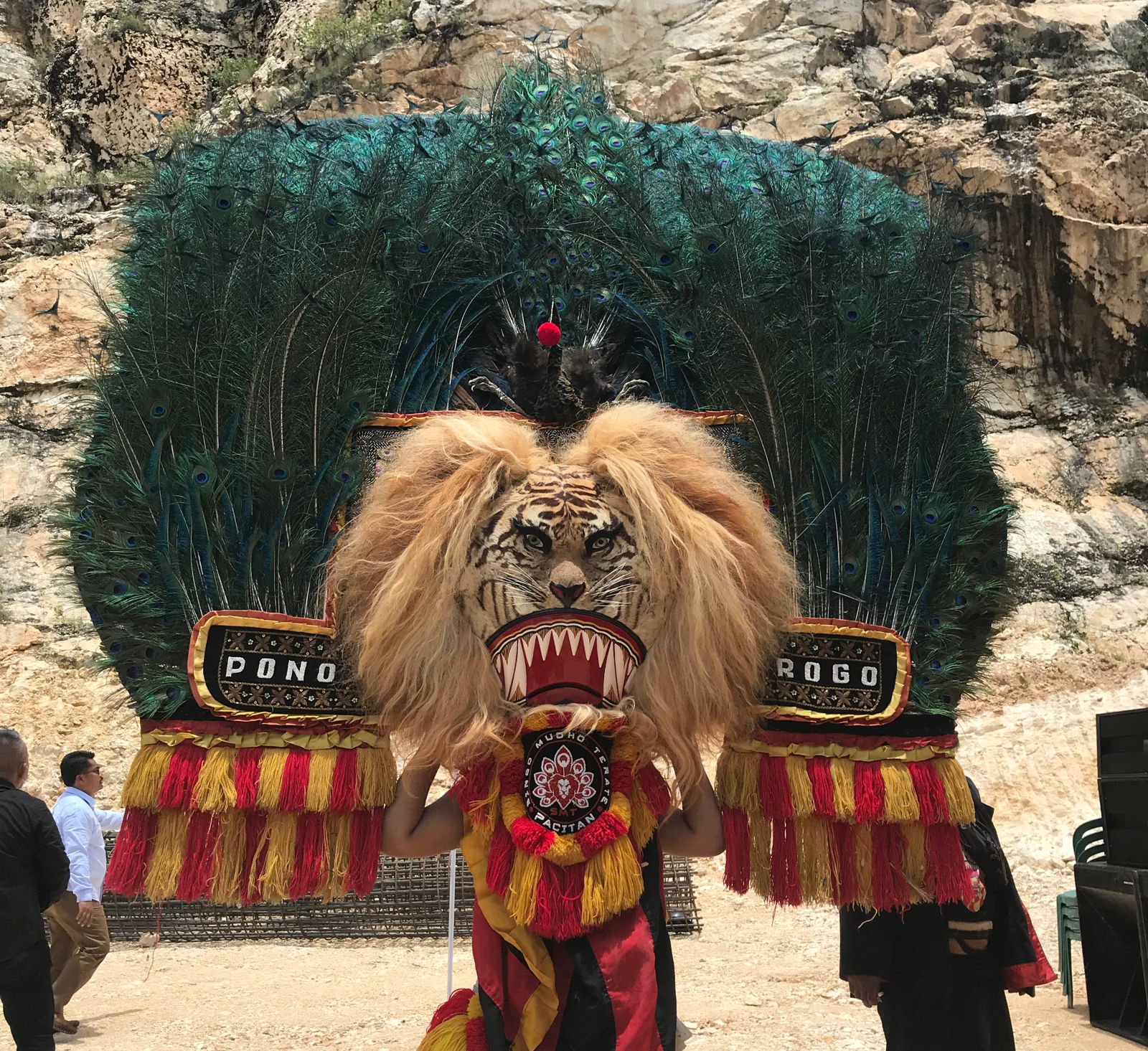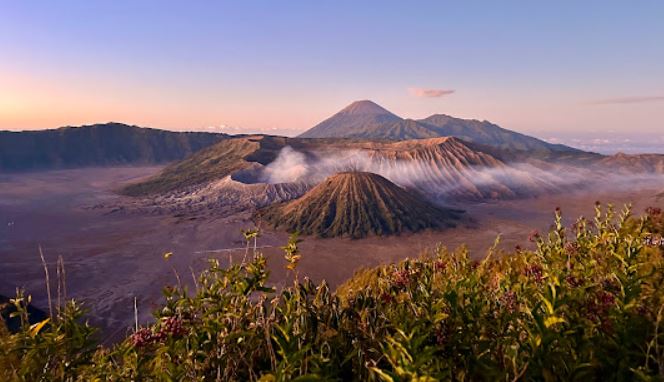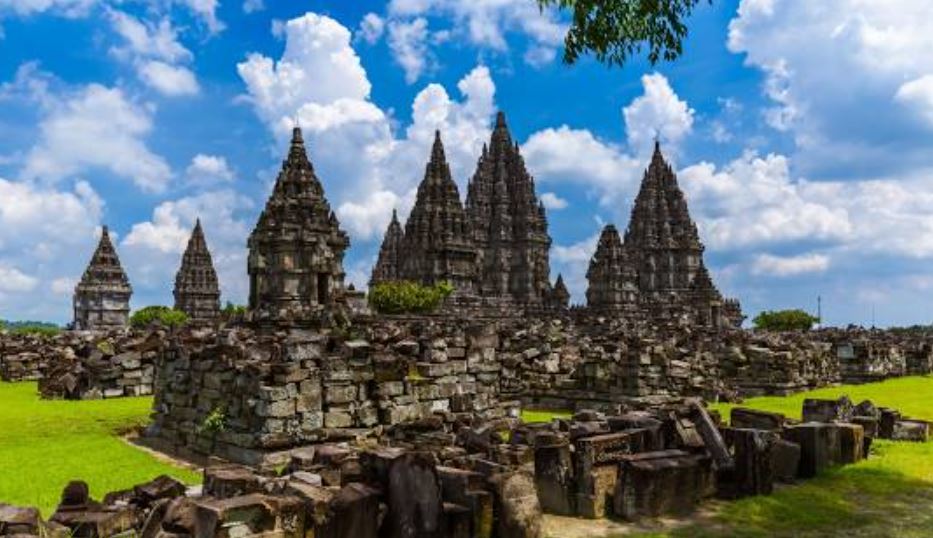
Java
Java, the most populous island in Indonesia, is a land of captivating contrasts. From its dramatic topography and geological wonders to its rich biodiversity, intricate human history, and diverse cultures, Java offers a rich tapestry of experiences with something to interest most any traveller.


Some Java Travel Highlights
- Borobudur Temple: Explore the magnificent Borobudur, the worlds largest Buddhist temple, and watch the sunrise from its serene terraces.
- Prambanan Temple: Visit the intricately carved Prambanan, a Hindu temple complex that rivals Borobudur in its architectural grandeur.
- Mount Bromo Trek: Embark on a trek to the summit of Mount Bromo to witness the surreal sunrise over the otherworldly landscape and or enjoy an all day tour of its massive caldera
- Jakarta Shopping, Dining & Entertainment: One day and multi day explorations of Jakarta to see glimpses of its colonial past, check out its landmarks, sample some of the very best in Indonesian and international cuisine, and experience its vibrant night life. Cap it all off with a midnight durian snack!
- Ujung Kulon National Park: Discover the unique ecosystems of Ujung Kulon, home to the Javan rhinoceros, while trekking through lush rainforests and pristine beaches.
- Dieng Plateau: Explore the highlands of Dieng, known for its volcanic activity, ancient temples, and stunning landscapes.
- Kawah Putih: Visit the otherworldly Kawah Putih, a turquoise crater lake surrounded by a volcanic landscape.
- Surfing in Batu Karas: Ride the waves in Batu Karas, a laid-back coastal village popular among surfers.
Explore and enjoy the diverse culture, nature and uniqueness of Java
Borobudur Temple
Prambanan Temple
Bromo National Park
Ujung Kulon National Park
Topography and Geology
Java’s topography is a dynamic blend of natural wonders and geographical diversity. The island is dominated by volcanic landscapes, and it is home to some of Indonesia’s most iconic volcanoes.
The Java Trench, part of the Pacific Ring of Fire, runs along the southern coast of the island and is responsible for Java’s volcanic activity. One of the most famous volcanoes is Mount Merapi, an active stratovolcano known for its frequent eruptions.
Mount Bromo, with its otherworldly caldera and stunning sunrises, is another must-visit volcanic destination on the island.The volcanic activity has also endowed Java with fertile soil, making it an agricultural powerhouse.
Lush, terraced rice fields and tea plantations grace the landscape, providing not only sustenance but also breathtaking scenery.
Biodiversity
Java’s biodiversity is as diverse as its landscapes. The island’s tropical climate and varied terrain support a wide array of flora and fauna. However, due to rapid urbanization and population growth, Java’s natural ecosystems are increasingly under threat.
While the island may not boast the same level of biodiversity as some other Indonesian islands, it is still home to a variety of unique species. Java is known for its Javan hawk-eagle, Javan rhinoceros (one of the world’s most critically endangered mammals), and Javan slow loris, among others.
The Ujung Kulon National Park, a UNESCO World Heritage Site, protects the habitat of the Javan rhinoceros and offers a glimpse into the island’s natural beauty. Java’s coastal areas are also rich in marine life, making it an ideal destination for diving and snorkeling. The coral reefs surrounding the island host a diverse range of underwater creatures and vibrant coral formations.
Human History and Cultures
Java’s human history dates back thousands of years. It has been inhabited by various ethnic groups, each contributing to the island’s cultural mosaic. The Javanese people, who make up the majority of the population, have a rich cultural heritage that encompasses art, music, dance, and language.
Java has played a significant role in Indonesia’s history. The island was the center of powerful kingdoms, including the Mataram Sultanate, which left behind impressive temples like Prambanan and Borobudur.
These UNESCO World Heritage Sites showcase Java’s architectural and artistic brilliance, and they are a testament to the island’s historical significance. The island has also been influenced by various religions, including Hinduism and Buddhism during the Srivijaya and Majapahit eras, and later Islam, which is the predominant religion today. This religious diversity is reflected in the architecture and traditions found across Java.
Java’s culture is further enriched by its traditional ceremonies, such as the Wayang Kulit shadow puppetry and the gamelan orchestra, which provide insight into the island’s artistic heritage
Ask us to design, curate and deliver a first class, unforgettable Indonesian Experience
